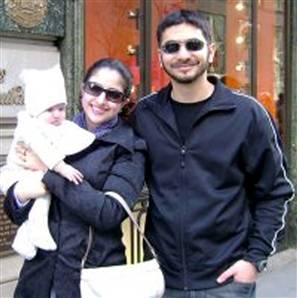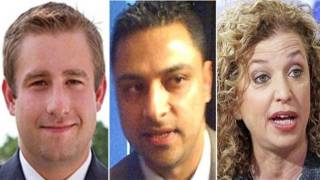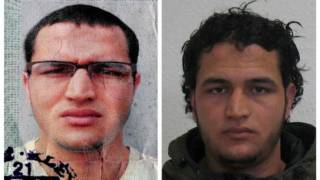"Security slip" let suspect on plane, near takeoff
Source: news.yahoo.com
The no-fly list failed to keep the Times Square suspect off the plane. Faisal Shahzad had boarded a jetliner bound for the United Arab Emirates Monday night before federal authorities pulled him back.The night’s events, gradually coming to light, underscored the flaws in the nation’s aviation security system, which despite its technologies, lists and information sharing, often comes down to someone making a right call.
As federal agents closed in, Faisal Shahzad was aboard Emirates Flight 202. He reserved a ticket on the way to John F. Kennedy International Airport, paid cash on arrival and walked through security without being stopped. By the time Customs and Border Protection officials spotted Shahzad’s name on the passenger list and recognized him as the bombing suspect they were looking for, he was in his seat and the plane was preparing to leave the gate.
But it didn’t. At the last minute, the pilot was notified, the jetliner’s door was opened and Shahzad was taken into custody.
After authorities pulled Shahzad off the plane, he admitted he was behind the crude Times Square car bomb, officials said. He also claimed to have been trained at a terror camp in Pakistan’s lawless tribal region of Waziristan, according to court documents. That raised increased concern that the bombing was an international terror plot.
Shahzad, a Pakistani-born U.S. citizen, was charged Tuesday with terrorism and attempting to use a weapon of mass destruction in Saturday evening’s failed Times Square bombing. According to a federal complaint, he confessed to buying an SUV, rigging it with a homemade bomb and driving it into the busy area where he tried to detonate it.
The Obama administration played down the fact that Shahzad, a U.S. citizen born in Pakistan, had made it aboard the plane. Homeland Security Secretary Janet Napolitano wouldn’t talk about it, other than to say Customs officials prevented the plane from taking off. White House spokesman Robert Gibbs said the security system has fallback procedures in place for times like this, and they worked.
And Attorney General Eric Holder said he "was never in any fear that we were in danger of losing him."
But it seemed clear the airline either never saw or ignored key information that would kept Shahzad off the plane, a fact that dampened what was otherwise hailed as a fast, successful law enforcement operation.
The no-fly list is supposed to mean just that. And Shahzad’s name was added to the list early Monday afternoon as a result of breaking developments in the investigation, according to a law enforcement official, speaking on condition of anonymity to discuss an ongoing investigation.
But when Emirates sold the ticket, it was working off an outdated list. Airline officials would have had to check a Web forum where updates are sent if it were to flag him. Because they didn’t, law enforcement officials were not aware of his travel plans until they received the passenger list 30 minutes before takeoff, the official said.
By that time, passengers are usually on board.
Gibbs blamed the airline but emphasized a more positive bottom line: U.S. authorities did get Shahzad on the no-fly list and he never took off.
"There’s a series of built-in redundancies, this being one of them," Gibbs said. "If there’s a mistake by a carrier, it can be double-checked."
The list is only as good as the nation’s intelligence and the experts who analyze it. If a lead is not shared, or if an analyst is unable to connect one piece of information to another, a terrorist could slip onto an airplane because his name is not on the watch list.
Officials allege that’s just what took place ahead of the attempted Christmas Day attack on a Detroit-bound jet. In the case of the Times Square suspect, the intelligence process worked: Shahzad’s name was on the list, but the airlines didn’t check it when he bought his ticket.
Shahzad went through normal airport security before he boarded the plane. He was unarmed and had no explosive material on him when he was arrested.
Emirates did not return repeated calls for comments. Earlier in the day, the company issued a general statement saying it was cooperating with investigators and takes every precaution to ensure its passengers’ safety.
The reliance on airlines to check government lists has been a known problem for years. The government has long planned to take over the responsibility for matching passengers to watch lists, but the transition has taken longer than expected. The new program is still in the test phase for domestic airlines and is still months away from beginning with international carriers.
Article from: news.yahoo.com























